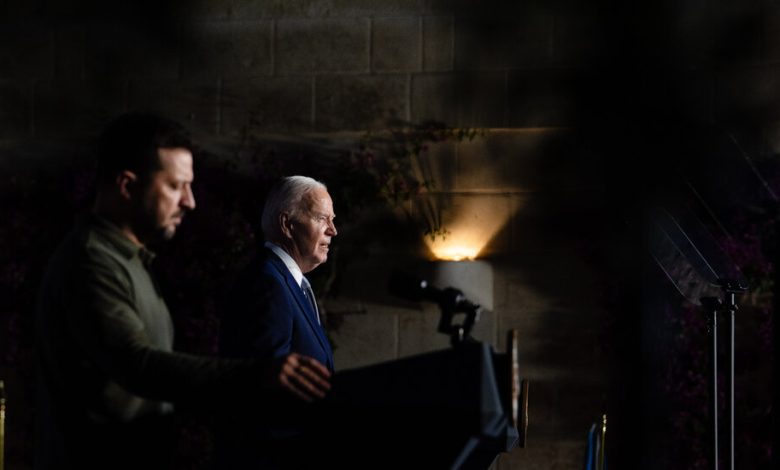At the G7, Biden Can’t Escape the Shadow of the Gaza War

Sharing the stage with President Volodymyr Zelensky of Ukraine at a sprawling seaside resort in Italy, President Biden was looking forward to talking about a security pact he had just signed to provide continued support to Ukraine in its battle with Russia.
Having skipped a dinner to attend the ceremonial signing of the pact and to answer reporters’ questions, he seemed flustered when, after a few questions about Ukraine, he was asked about a topic that has been less rewarding recently: the war in Gaza.
“I wish you guys would play by the rules a little bit,” Mr. Biden snapped when asked for an update on the fate of a cease-fire deal in Gaza that he announced last month but has yet to be publicly accepted by Israel or Hamas. Mr. Biden reiterated the U.S. stance that the proposal had been endorsed by the Israeli government, the United Nations Security Council and the G7, and that the hold up was with Hamas.
The moment was emblematic of the shadow that American support for Israel’s war in Gaza has cast over Mr. Biden’s efforts to restore the United States’ traditional role as a defender of democracy and a beacon of international law. As he has rallied the world around Ukraine, he has grown increasingly isolated in his staunch support for Israel in its war against Hamas.
In recent weeks, the administration has urgently sought an end to the war in Gaza, which started after Hamas carried out an attack on Oct. 7, killing 1,200 people and taking around 250 hostages, Israel says. The health authorities in Gaza say that more than 37,000 Gazans have perished so far, and humanitarian aid groups warn that hundreds of thousands are facing famine conditions.
